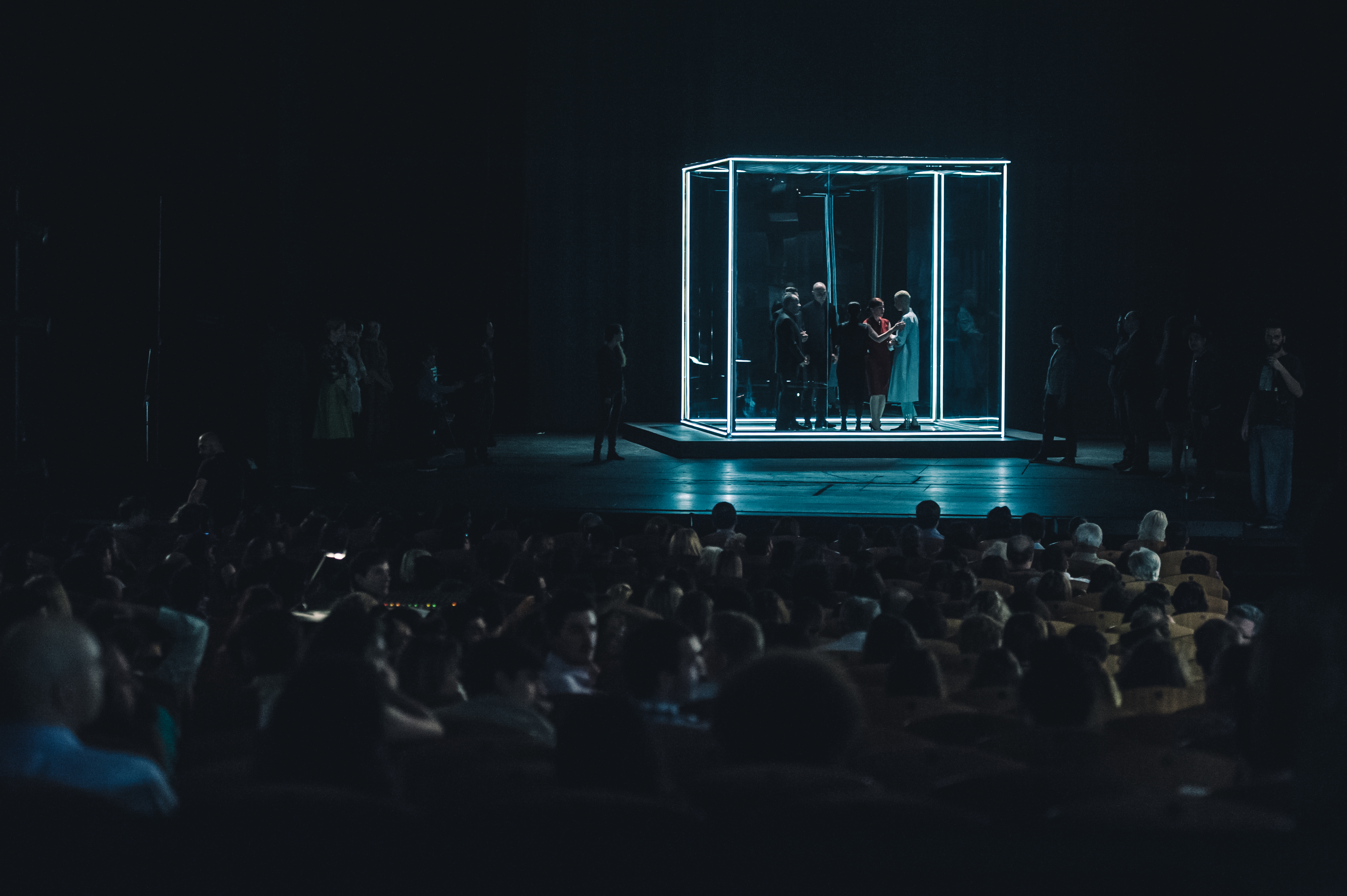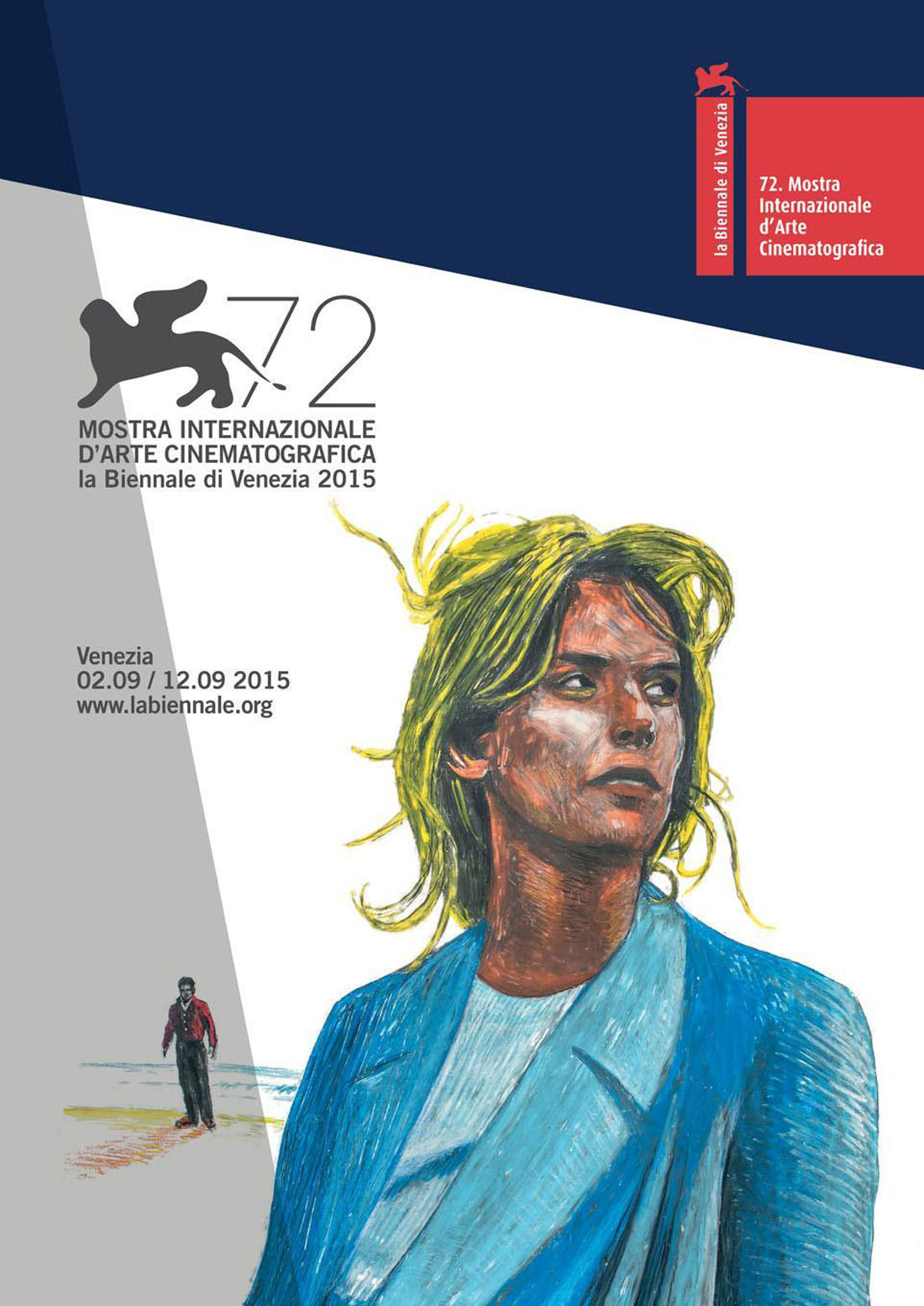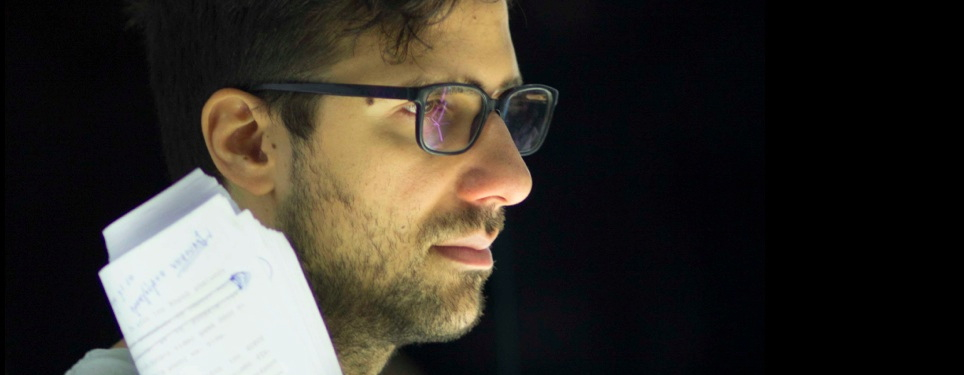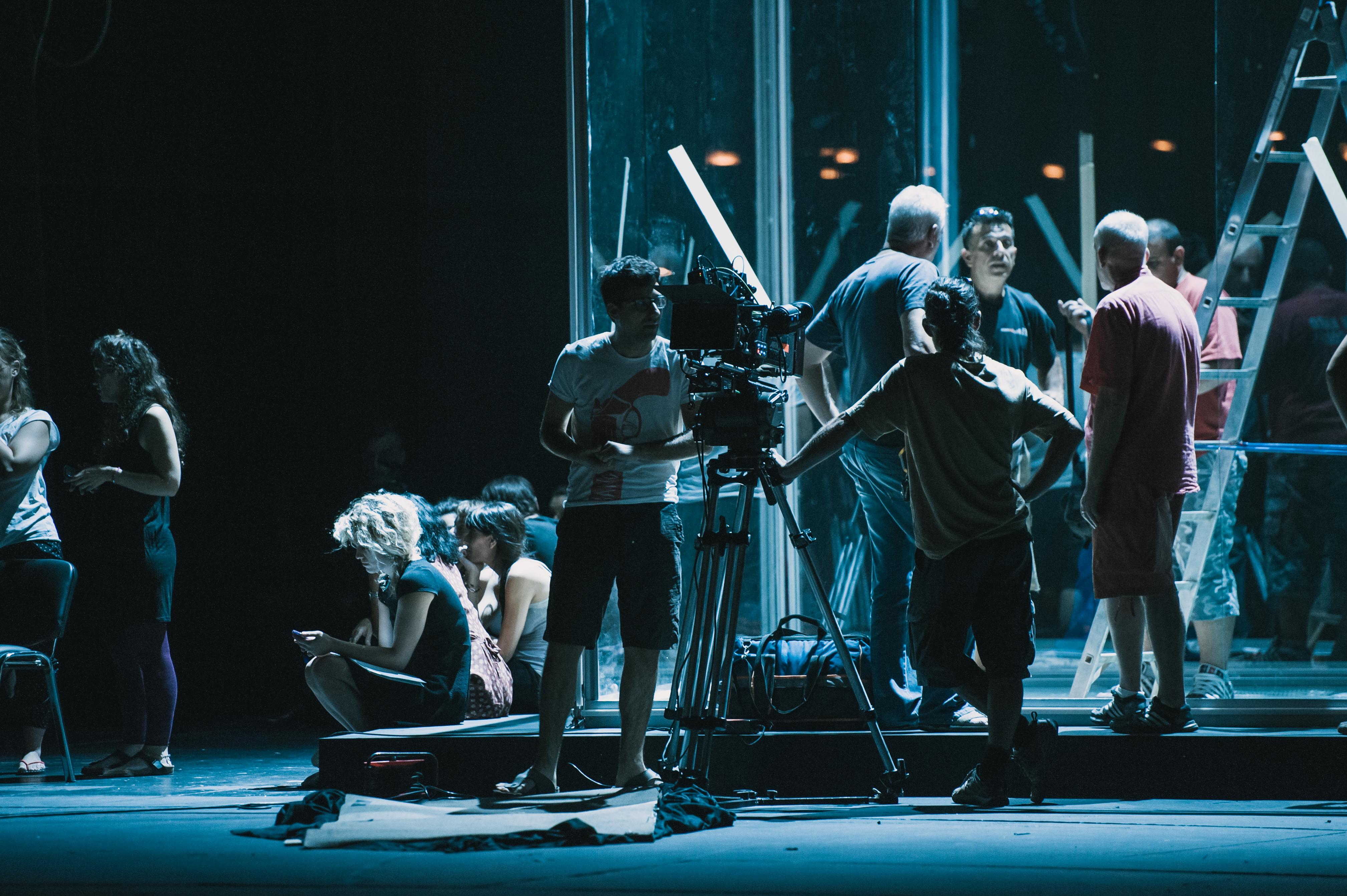Interruption

Yorgos Zois ha scritto e diretto Interruption. Il film viene presentato a Venezia oggi 8 settembre nella sezione Orizzonti, alle 14:30 nella sala Darsena
La traduzione in italiano dell’intervista è disponibile QUI: SCRITTORI A VENEZIA. Yorgos Zois
Yorgos, can you pitch your film for us? What is your story about?
It’s about a hostage situation inside a theater where the hostages weren’t aware of what was going on.
How did you come up with this idea?
On 23 October 2002, fifty armed Chechens took eight hundred fifty spectators as hostages in Dubrovka Theater in Moscow. What really captivated me in that situation was the first minutes οf the surveillance camera capturing the action on the stage.
The play was a musical in which the actors were acting as Russian navy soldiers. When the Chechens got inside wearing army uniforms and shooting with real guns in the air, everybody thought that this was all part of the show; in addition they found it “a great realistic performance.” In those crucial moments, art and life, logic and absurdity, fiction and reality merged. The initial idea was to expand those first minutes of ambivalence until the end.
Greece is living one of the most delicate moments in its entire history. Do you feel that your film somehow translates what’s going on in Greece?
Nowadays, it’s almost inevitable for the viewers to relate the current situation in Greece with every single Greek film. It’s a reality that no Greek filmmaker can really escape from. Of course in this film the people of Greece can relate because they are also living in a peculiar hostage situation; they can’t tell what is real or what is not, how to act or react. But in my opinion, the situation in the film has to do with all people’s lives no matter if they live in a financial crisis or not; we are all hostages of manipulating voices, human and social relations and misleading assumptions.
For me the main focus of the film should be the film itself. The film is structured in such a way that leaves the viewer free to make his own interpretations and travel with his mind into different levels of reality, challenging the way we see things. It’s a film that creates its own cinematic universe, inside a theater. It could have been shot in any other capital of the world. Even the Greek tragedy that the script was based on, is a universal myth, and it still remains powerful in the present because it deals with some of the fundamental issues of humanity: power, violence, justice, catharsis. So according to me, the strength of this film, and every film, is in fact its filmic universe, no matter where it comes from.
Do you believe that social urgencies can make cinema even more powerful?
The past few years and especially now, history events have accelerated in Greece. This has caused an unexpected shock that changed everyone’s lives. As a result, there is an existential urgency for many things to be directly expressed; every single day new images are being born in the streets of Athens that no one could predict or imagine. But there is also a danger here that has to be confronted by filmmakers. The films have to create original cinematic poetry without falling into a “crisis porn” genre that exploits the harsh reality images to sell cheap visual drama.
You wrote Interruption with the collaboration of Vassileios Kyriakopoulos. How did it go? Do you prefer to write your films by yourself, or you think that a close collaboration between a writer and a director is critical to make a great film? Do you consider yourself more as a director or a writer?

Vassileios is my closest friend from high school. One night I phoned him to tell him the idea I had for the film and before I even finished my sentence he interrupted me and told me the end of my idea. That’s when we both knew that we had to write this script together. After that, a lot of things have changed and the final film has almost nothing to do with the first draft we wrote. We grew together with the film and everything changed with us. For me, it’s a blessing to find someone that you can directly communicate with. But this is matter of both pure luck and chemistry and if it works, then it works just beautifully! If it doesn’t work, then there is no need to follow a general cliché that says that directors need to work with scriptwriters to produce a great film. I personally cannot film something that I have not written in a deep personal way.
This is your first long feature. Previously, your two shorts both premiered at Venice. ‘Out of frame’, your second short film, won the EFA award for the Best European short film and was nominated for Best Short film of the European Film Academy Awards 2012. How do you imagine your future in this industry?
My personal cinematic utopia would be to create the films I want without forgetting to live.
Which are the strongest points of your screenplay? What genre/model were you inspired by?
I would never reveal any spoilers myself. I was deeply inspired by some films that belong to different genres. For me, they served as a personal motivation that made me believe in cinema as an art form in order to make a film. I would quote Close up, Bladerunner. The Act of Killing, Under the Skin and La vie nouvelle. All these films belong to different genres but at the same time they can not fit into cinematic categories. I believe Interruption is also a film that can’t be easily genre-labelled. I think that this film creates its own cinematic universe.
Did you ever think of meeting some kind of target (read: audience) while writing Interruption?
I wanted to have all the feedback I could get from different kinds of people. So I gave the script to filmmakers I trust and some that I barely knew but I like their work. At the same time I gave the script to people who had never read a script before and to some that do not even go to the movies. I did the same when I had a first cut of the film. And the most valuable remarks were made from people that had no connection with either me or cinema. You could hear things that you would never imagine. At the end, their remarks really helped me not to correct the script but to find out the artistic identity I wanted the film to have.
How many changes (if any) to the script, needed to be made while filming? Why?
For me there are two scripts. The one before the first day of the rehearsals and the other, before the first shooting day. Both of them had the same key scene points but everything else was changed from dialogues to actions. This is because I followed a specific route for this film; in the rehearsals no actor knew the script, only the main hero did. My goal was to create a special environment in a theater where no actor would know what was about to happen. Just like it happens in real life! So everyone had to react to things that did not expect, and experience the same feelings that normal people (not actors) would have if all that was real. So, when the shooting began, everybody grabbed his script and found out there was no third act. No one knew what was going to happen. We all found out the day of the shooting. I think this choice originated that “slice of life” I wanted to achieve. I was just hoping that the cameras would record it.
We created the Writers Guild Italia to defend the Italian writers, our work and our rights. What do you think about it? How is the situation for the filmmakers in Greece?
I think that if it works, you are doing great! In Greece unfortunately, our rights are not fairly represented, and there are some corrupted organizations that just fight for their members and exclude the others.
Are there any Italian films that you consider fundamental for your artistic development?
I liked Le Quattro Volte by Michelangelo Frammartino very much. I consider him as a great filmmaker, and his vision is so simple and daring. And of course I have great respect and admiration for Pasolini, who was a great pioneer of cinema and one of my biggest inspirations for this film. I even nailed a picture of him to the production’s wall once, taken by the making of Salò, which reads, ¨Nothing is more anarchic than power. Power does what it wants.” And from the main character of Interruption, I had a still image from ‘Teorema’ saying: “Through the love you gave me, I became aware of my illness.”
What are you expecting from Venice?
To lose my cinematic virginity as a first time feature film director and enjoy the pain.
Thank you, Yorgos! Enjoy the pain then.


Le foto sono di Yorgos Zois che ringraziamo.



